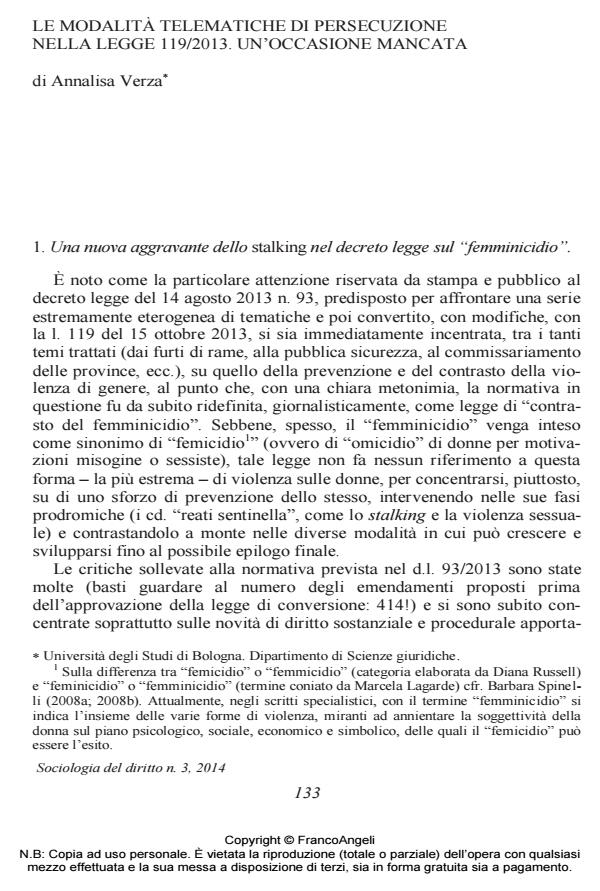Methods of online persecution in Law N° 119/2013. A missed opportunity
Journal title SOCIOLOGIA DEL DIRITTO
Author/s Annalisa Verza
Publishing Year 2015 Issue 2014/3
Language Italian Pages 20 P. 133-152 File size 137 KB
DOI 10.3280/SD2014-003007
DOI is like a bar code for intellectual property: to have more infomation
click here
Below, you can see the article first page
If you want to buy this article in PDF format, you can do it, following the instructions to buy download credits

FrancoAngeli is member of Publishers International Linking Association, Inc (PILA), a not-for-profit association which run the CrossRef service enabling links to and from online scholarly content.
In this article, the author sets out to evaluate the consistency and effectiveness of using Italian Law N° 119, dated 15 October 2013, known as the "Feminicide Act", in the framework of the crime of stalking (referred to in Italian as persecutory acts) as defined in Art. 612 b of the Italian Criminal Code, to insert the aggr avating circumstance generated when such acts are perpetrated through computerised or online tools. For this purpose, she considers how this aggravating factor relates to certain forms of harassment that are typically exacerbated by the use of computerised and online media, focusing in particular on cyberbullying, on impersonation and, above all, on the unauthorised dissemination of pornographic material, which takes place increasingly online and yet which has still not been accorded an adequate framework, according related protection, in Italy’s legal order, not even since a law was passed for the purpose of disciplining the different forms of feminicide, among other things.
Keywords: Cyberstalking, Feminicide, "Revenge porn", Cyberbullying, Online tools
Annalisa Verza, Le modalità telematiche di persecuzione nella legge 119/2013. un’occasione mancata in "SOCIOLOGIA DEL DIRITTO " 3/2014, pp 133-152, DOI: 10.3280/SD2014-003007